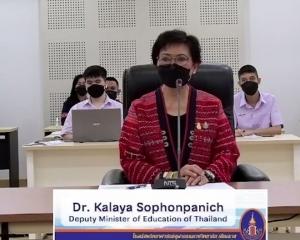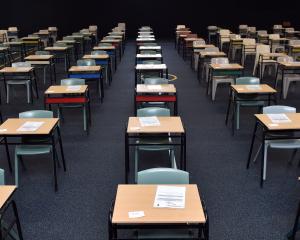The report, titled Promoting Success for Maori Students: Schools' Progress, was critical of schools' efforts to improve the teaching practice of Maori pupils in New Zealand schools, and national and international data continued to show a significant disparity between Maori and non-Maori achievement.
ERO has published five national evaluation reports on the success of Maori pupils since 2001, which identified system-wide issues and provided advice to schools and the Ministry of Education aimed at promoting educational success for Maori.
"It is of concern that this 2010 ERO national evaluation indicates not all educators have yet recognised their professional responsibility to provide a learning environment that promotes success for Maori students," the report stated.
"Despite the widespread information and support available, a substantial proportion of schools do not review their own performance in relation to Maori student achievement.
"These schools do not make effective use of data to improve classroom programmes and school-wide systems to promote success for Maori.
"Nor do they use research about Maori students learning to guide their curriculum review and pedagogical development."
Although schools' engagement with the Maori community had improved, the report found consultation with Maori parents and whanau was limited in a "sizeable" minority of schools, and Maori parents' engagement in their children's education was not valued.
ERO chief review officer Dr Graham Stoop said there were nearly 167,000 Maori pupils in New Zealand schools, and their success was a matter of national interest and priority.
"It is disappointing that not all educators are doing as well for these students as they could."
Dr Stoop said ERO was serious about its role in promoting success for Maori pupils, and did not consider any school to be high performing unless it demonstrated the majority of Maori learners were progressing well and succeeding as Maori.
"This means that one of the key factors for a decision on the return timing for a school's next ERO review will be how well the school is succeeding in improving the achievement of Maori students."
However, Otago Secondary Principals' Association chairwoman Julie Anderson said Otago schools had been monitoring the success of Maori pupils and collecting and analysing data to improve their performance.
"Maori achievement has been a focus of ERO visits over the last few years and Otago schools will have had this aspect of their student-achievement data reviewed by recent visiting ERO teams.
"A number of Otago schools have only a small number of Maori students, and I expect within these schools, each Maori student will be monitored as an individual.
"Other Otago schools with larger Maori populations have whanau group meetings, and whanau and community input into school-wide goals for Maori students, and cultural activities and ceremonies."
Mrs Anderson said schools in the Otago region were well supported by local iwi, the pouwhakataki (community liaison officers) from the Ministry of Education, the Southern District Health Board and other community groups.
Otago Primary Principals' Association president Jenny Clarke said many schools in the southern region were achieving at, or beyond, the expected level despite the national trend of Maori pupils being over-represented in the group underachieving in our schools.
She believed part of the problem for many New Zealand schools was their attention was being diverted from the issue by national standards policy.
"There are political and social responsibilities that need to be addressed for the children underachieving in school.
Education alone cannot compensate for society.
"Effective pedagogy, ongoing high-quality school-wide professional learning and building strong effective relationships with our communities will support children to achieve.
The Government needs to resource schools adequately to do this," she said.
Advertisement












